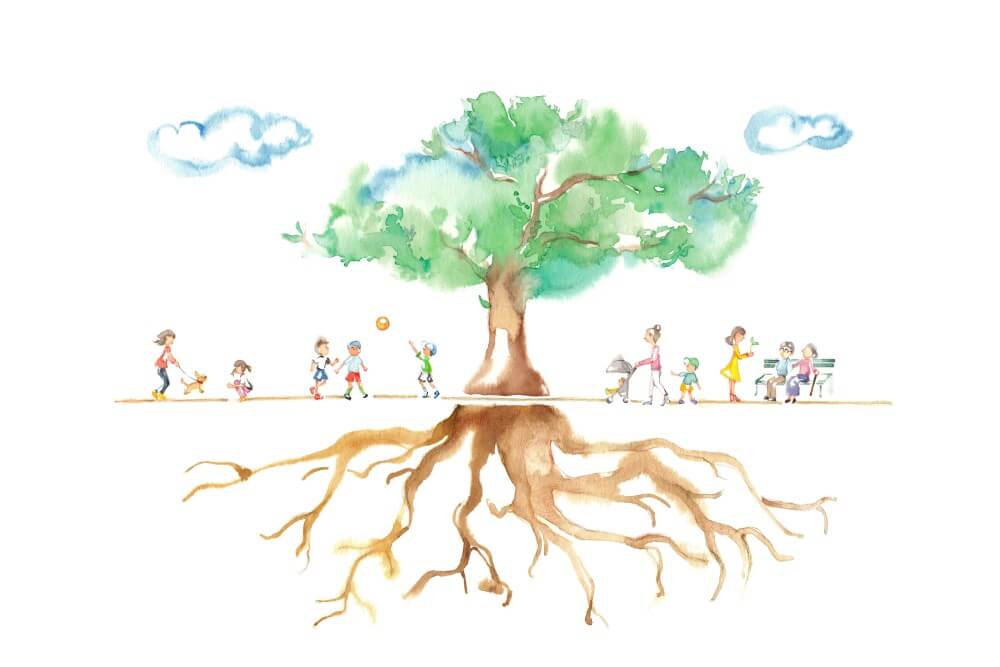By World Family Education
When a family uproots from their home culture, one of the most difficult aspects of leaving is letting go of close relationships. Despite having social media and other modes of staying connected, the physical loss of family and friends can be incredibly painful.
Why Community is Vital
Although new friendships won’t replace the relationships you’ve left behind, they will help you begin to feel more at home, wherever you are. Taking proactive steps to make new relationships and build community for every member of your family may be the key factor that helps you successfully transition to your new location.
Benefits abound for those who find and maintain a supportive community. Good relationships help us experience a better self-understanding, reinforced and expanded beliefs, and purpose in life. They also provide better health, and studies show that strong relationships result in lower rates of anxiety and depression, strengthened immune systems, faster recovery from disease, and a longer life. (from Strong Relationships, Strong Health from the State Government of Victoria, Australia)
Psychiatrist Robert Waldinger, the director of a 75-year-old study on adult development, describes how quality relationships are the single most important factor that keep people happy and healthy as they go through life:
“Turns out that people who are more socially connected — to family, to friends, to community — are happier, they’re physically healthier, and they live longer than people who are less well-connected.”
Robert Waldinger
Having community means having support, and of course the opposite is true as well — no community means no support. Scientific data has proven that loneliness is a greater risk to your health than smoking or lack of exercise, and finding community is better than any vitamin, diet, or exercise program.
Community impacts health and wellbeing in deep ways, and that’s why finding new relational connections is important.
Prioritize New Relationships
After moving to your new location, making in-person friendships should be a priority for everyone in your family. This won’t be easy, because you can’t replicate the kind of community you’ve had in the past. You’ll have to seek new ways of relating to others, and at times, those may be out of your comfort zone.
The blogger Purple Crayon Your World has some great insights for global nomads looking for community.
Your strategy for finding relationships will depend on where you live and resources available to you. Oftentimes, relationships are formed most easily through connections your children make at school or in your neighborhood.
A temptation may be to socialize primarily with other families like yours — international families (expatriates) that aren’t so integrated into the local culture. These connections may help you initially, and you may need them to cope with cross-cultural challenges. But if your relationships don’t expand beyond the “expat bubble,” you will be left with a superficial tourist-like experience in your new location. A deeper, longer-lasting adjustment to your new home will require relationships with locals.
Traveling the world is all well and good, but if you stick to satellite groups of your fellow expats or the sanitized version of a culture peddled by tour guides and travel agents, then it’s really something of a meaningless experience.
Work the World
Some Ways to Connect with Others
Online Support
Your in-person friendships may be supplemented with relationships and support groups online. These may be helpful but should be secondary to meeting people where you live. Some suggestions for online community:
I Am a Triangle is a community for adult global nomads of all kinds — CCKs, expatriates, repatriates, etc.
Foreign Service Youth Foundation supports children of employees of U.S. foreign affairs agencies. Helps young people adapt to changing environments as they transition between posts worldwide.
TCKidNow, which is for adults and youth, offers community and forums online as well as community in various cities for TCKs.


